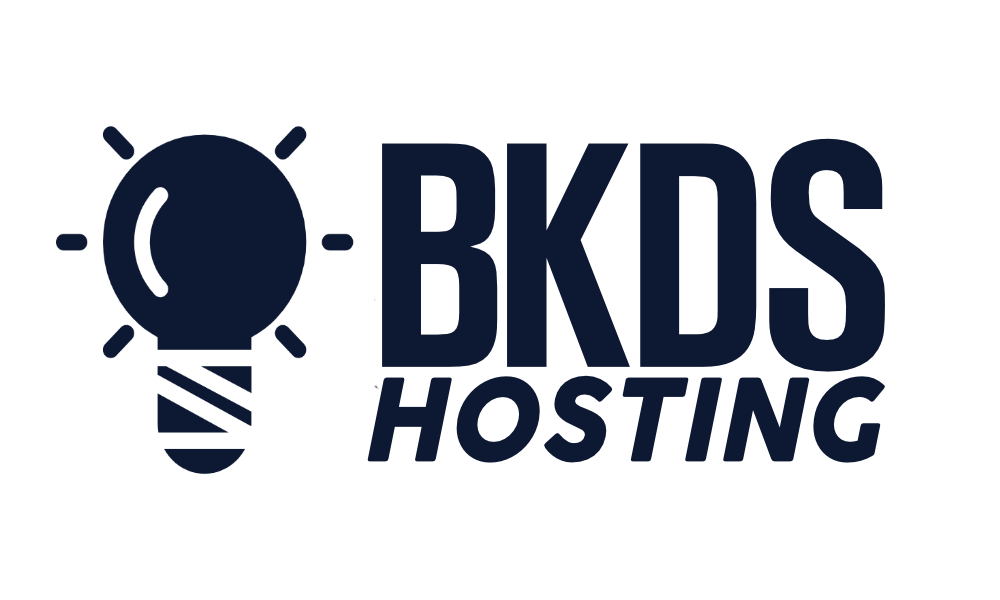7 Ways Professional Hosting Elevates Small Business Growth
In the current digital age, the significance of professional hosting for small businesses cannot be overstated. It is the backbone of successful online operations, facilitating a myriad of functions that range from establishing a strong brand presence to optimizing SEO potential, and even ensuring website performance. These elements become critical drivers in the acceleration of small business growth. However, the benefits of professional hosting extend beyond these thematic areas. As we proceed with this discourse, we will explore seven fundamental ways in which professional hosting can truly elevate small business growth, offering a deeper understanding of its potential impact on the overall business trajectory.
Establishing Brand Relevance

Efficient marketing and promotional efforts play a crucial role in establishing brand relevance, a process that involves carving out a distinct identity in the business landscape and enhancing brand recognition. For small business owners, this is a critical part of the journey towards small business growth. A powerful way to promote your small business and increase brand awareness is through professional hosting.
The benefits of hosting extend beyond mere visibility. It provides the opportunity to interact with guests during events and networking opportunities, fostering lasting brand recognition. Networking events serve as a platform for meeting industry experts, potential mentors, and like-minded professionals, all of which contribute significantly to establishing brand relevance.
Furthermore, these events facilitate the exchange of ideas, allowing participants to offer significant knowledge, fostering innovative solutions and increased brand relevance. Additionally, effective content marketing and social media strategies can attract relevant traffic to your website, thereby enhancing brand relevance and recognition.
Ensuring Website Performance
In the realm of digital business growth, ensuring optimal website performance is paramount, and this can be effectively achieved through the utilization of professional hosting services. For small businesses striving to maintain a competitive edge, the performance of their web design plays a crucial role in their overall business growth strategy.
Professional hosting services offer a myriad of advantages to small businesses, including consistent website performance. They provide reliable hosting that minimizes website downtime and ensures fast loading speeds, critical factors in maintaining user engagement and reducing bounce rates.
Furthermore, professional hosting services heighten website security, guarding against cyber threats and ensuring the integrity of business operations. They also offer scalable resources, which are essential in managing traffic spikes and supporting business growth.
Another significant advantage of professional hosting is the provision of round-the-clock technical support. This ensures that any issues impacting website performance are promptly addressed, preventing potential losses in sales and customer trust.
Enhancing User Experience

Building a superior user experience, a cornerstone in digital business growth, hinges on leveraging professional hosting services and their myriad of benefits. Professional hosting offers a suite of tools and specialized services that elevate user experience, thereby enhancing small business growth.
Professional hosting services enable businesses to provide seamless and efficient user experiences by:
- Ensuring excellent website performance and uptime, which prevents customer frustration due to slow or unresponsive websites.
- Offering robust security measures that protect user data and increase customers' trust in the business.
- Providing scalable solutions that can easily adapt to increasing website traffic, thus ensuring a consistent user experience even during peak times.
- Giving access to expert technical support that can promptly resolve any issues, further enhancing the user experience.
- Facilitating faster loading times, which are crucial in today's fast-paced digital world where every second counts.
Incorporating professional hosting into your business strategy can significantly improve the user experience, leading to increased customer satisfaction and loyalty. This, in turn, can drive business growth and establish a strong market presence. Therefore, investing in professional hosting is a crucial step towards elevating your small business.
Optimizing SEO Potential
How can professional hosting services be leveraged to optimize your small business's SEO potential? Optimizing SEO potential is a crucial ingredient for any new business trying to secure a spot in the competitive digital landscape.
Professional hosting services can enhance your brand's visibility on search engines by providing a platform for dynamic, engaging marketing content. These platforms, equipped with advanced SEO tools and features, can be leveraged to tailor your website's content, meta tags, and keywords to align with search engine algorithms.
Furthermore, professional hosting services often offer fast, responsive websites that are favored by search engines, thus improving your website's ranking. This, in turn, attracts more organic traffic, helping grow your business.
For local businesses, professional hosting services can optimize local SEO by enabling local websites to announce events or offers. This promotes your business within the local community, driving targeted traffic to your website.
Lastly, professional hosting services can integrate seamlessly with social media platforms. This allows you to promote events, engage with your audience, and drive more traffic to your site, thereby optimizing your SEO potential.
To conclude, investing in professional hosting is a smart, innovative approach to growing your business and optimizing its online visibility.
Facilitating E-commerce Activities

Transitioning to e-commerce activities represents a substantial leap for any small business, mandating the establishment of an interactive online platform for the sale of products or services. Professional hosting can play a pivotal role in this transition, providing the necessary tools and resources to facilitate these e-commerce activities effectively.
To help small businesses thrive in the online marketplace, professional hosting offers:
- Comprehensive solutions for website set-up, ensuring a user-friendly interface and a secure checkout process.
- Optimized website performance for better search engine rankings, attracting more customers to your product or service.
- Effective inventory management systems, enabling businesses to keep track of stock levels and fulfill orders promptly.
- Integrated marketing tools to bolster online presence, enhancing visibility and driving sales.
- Robust data security measures, safeguarding customer information and building trust.
Harnessing these capabilities, business professionals can focus more on their core operations while leaving the technical aspects to the experts. This allows for smoother e-commerce activities, improved customer experiences, and ultimately, accelerated business growth. Professional hosting can be the strategic partner in your transition to e-commerce, helping to elevate your small business to new heights.
Securing Data and Transactions
While professional hosting substantially facilitates e-commerce activities, it also provides rigorous security measures to protect data and transactions, a critical aspect for any online business operation. In every business situation, the implementation of encryption techniques and secure socket layer (SSL) certificates ensures the safeguarding of sensitive data, a necessary step in securing data and transactions. This is particularly vital for small business growth, as gaining the trust of new customers hinges on the assurance that their personal and financial information will remain confidential and secure.
Professional hosting services regularly update and maintain security patches for software and systems, further fortifying the business's digital defenses. Moreover, the incorporation of multifactor authentication adds an extra layer of protection, significantly reducing the risk of unauthorized access.
Regular security audits and penetration testing are also conducted to identify and address vulnerabilities promptly, ensuring that the system remains robust against potential cyber threats. These progressive measures provided by professional hosting not only enhance the security of online business operations but also contribute significantly to the growth and success of small businesses.
Providing Scalability and Flexibility

Scalability and flexibility are two crucial elements that professional hosting brings to small businesses. The ability to scale resources according to business growth and adapt to changing needs underscores the utility of professional hosting. In the following discussion, we will explore how these factors contribute to small business expansion and efficiency.
Benefits of Scalability
In the dynamic landscape of small business growth, scalability offers the essential benefit of easy expansion, enabling firms to adapt swiftly and efficiently to evolving needs and demands. Professional hosting services provide this scalability, thereby helping to elevate small businesses to greater heights.
The benefits of scalability include:
- Allowing for the easy expansion as the business grows, thus facilitating a smooth growth trajectory.
- Offering the flexibility to adjust resources and processes based on business growth, thus preventing inefficiencies.
- Enabling efficient integration of new technologies as the business expands, thus enhancing innovation.
- Facilitating seamless addition of new products or services to meet evolving customer demands.
- Ensuring high-quality customer support can be maintained even during periods of rapid growth.
Scalability, thus, proves to be an invaluable asset in the realm of small business growth.
Flexibility in Hosting
Building on the concept of scalability, it is crucial to appreciate how flexibility in hosting plays an integral role in facilitating this adaptability, providing businesses the leeway to adjust to sudden traffic spikes, integrate new technologies, and swiftly respond to market trends. This elasticity lets you use social media and other new platforms effectively, fostering innovation. Further, flexible hosting can help your business to modify its online presence according to market research findings, capitalizing on emerging opportunities. Indeed, flexibility in hosting is a vital step you can take to help you grow your business. By enabling you to adjust your hosting resources in line with evolving demands, it effectively paves the way for robust and sustainable business growth.
Conclusion
In conclusion, professional hosting offers multifaceted benefits for small business growth. It paves the way for brand relevance, enhances website performance, and optimizes user experience. It bolsters SEO potential while facilitating e-commerce activities. It prioritizes data security and transaction safety while offering scalability and flexibility in operations. These factors cumulatively contribute to the enriched business growth, reinforcing the significance of professional hosting in the contemporary digital business landscape.










































